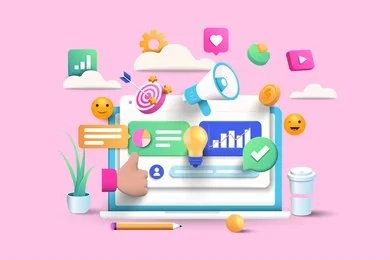The rapid growth and commercial penetration of new media technologies have made the media and entertainment degree a favourite among students. You may have heard of PGDM courses in marketing, international business, finance, human resources, etc., but a PGDM in media and entertainment is something new.
Because of the rapid growth and market penetration of new media technologies, the media and entertainment sector is quickly becoming popular among students. Those who decide to have a career in media and entertainment have a wide range of professional options because the area is still relatively young. This is why a media and entertainment program was inculcated in the curriculum by the Welingkar Institute Of Management.
10 career prospects that are open to you with a PGDM in Media and Entertainment
With a PGDM in Media & Entertainment, you can pursue a career in the entertainment industry working in the following positions:
- Media strategist – In essence, media strategists choose the what, where, and who of a marketing campaign. Their work requires intelligence and imagination, from analysing data to comprehending client profiles to determining the most appropriate means to convey the message. They are unquestionably a vital component of any squad.
- Marketing analyst – The position of marketing analyst is more sophisticated because it encompasses more than just marketing. They aid in the strategic communication of information about the consumer’s purchasing power and, consequently, their inclination to purchase particular goods or link to particular communications.
- Media manager – Media managers are experts at determining the kind of content that works well on each platform. Media managers oversee the end-to-end content requirements across various media channels, from creation to publication. Some media managers are special and in-demand experts since they can also analyse data and analytics. A social media manager, who concentrates on social media platforms like Facebook, Instagram, and LinkedIn, is a subclass of this position.
- Media planning manager – Organising campaign communications effectively across various media is the primary responsibility of a media planner. As a result, they “plan” the media by examining the kind of consumer interacting with a certain medium, the brand’s communication style, the budget allocated, the goal, and the time frame. After everything has been decided, they provide the media buyer with their recommendations.
- Media buyer – To put it simply, a media buyer purchases media. In the media and entertainment sector, this is one of the most important positions. Imagine a carefully thought-out campaign with outstanding graphics and a message. The entire campaign is in vain if the target audience does not receive this communication due to a lack of a media platform or costly media space. Therefore, a brand will air its most crucial message during prime time if it can purchase time during that period on all national networks at the lowest possible cost. A media buyer ensures that the brand always purchases this space at the lowest possible price.
- TV producer – Among the multiple responsibilities of a TV producer are planning, budgeting, strategy, talent management, contract signing, and project execution from start to finish. Even before actors travel to the shoot location, TV producers have already visited the site! Do the same! They oversee and manage every facet of the production and eventually turn into “the voice” supporting any performer or show.
- Corporate communication – As the name implies, these people work with how corporations interact with their employees and the public. Investors, interns, and C-level executives are among the stakeholders. For someone with strong managerial and communication skills, this is a lucrative job.
- Digital media analyst – Digital media has swiftly emerged as the preferred medium for advertisers. The media contains a wealth of information that explains consumer behaviour and aids firms in creating focused and educated advertisements, from Google search ads to websites, from social media platforms to link clicks through emailers. After interpreting the data, the digital media analysts present it to buyers, content producers, corporate communicators, digital media planners, and even designers.
- Channel head – To put it simply, a channel manager or head is in charge of a channel’s financial, reputational, and communicative well-being. A combination of sales, marketing, analytics, communication, managerial, and leadership abilities are required for this position. Channel managers juggle numerous hats, from gaining a thorough grasp of the audience to identifying a channel’s capabilities, from boosting audience viewership to boosting stakeholder confidence.
- Creative head – Creative head is a broad phrase that necessitates the ability to exhibit one’s creativity. Designers, sound engineers, screenwriters, set designers, post-production workers, and so on are a few examples. Certain habits and behaviours that foster creativity can be taught, even though creativity itself cannot be properly taught. Creative minds produce tales, designs, or music for any kind of communication, including high-profile films, TV commercials, and radio jingles. Having a degree in management helps individuals advance in their careers.
Conclusion
Both new and old media are competing for our attention these days. Digital, gaming, OTT platforms, and immersive media like virtual reality and mixed reality are posing a threat to traditional media, including television, print, film, and radio. With more than 900 million subscribers, India is now the world’s second-largest online market in the year 2024, thanks to the introduction of 5G smartphones. Professionals skilled in modern media are in high demand since so many “eyes” are consuming it. At WeSchool, the aim is to advance students to professionals. With a PGDM in media and entertainment course, the new leaders of tomorrow will be able to lead sizeable teams, generate revenue, and create new growth opportunities.






